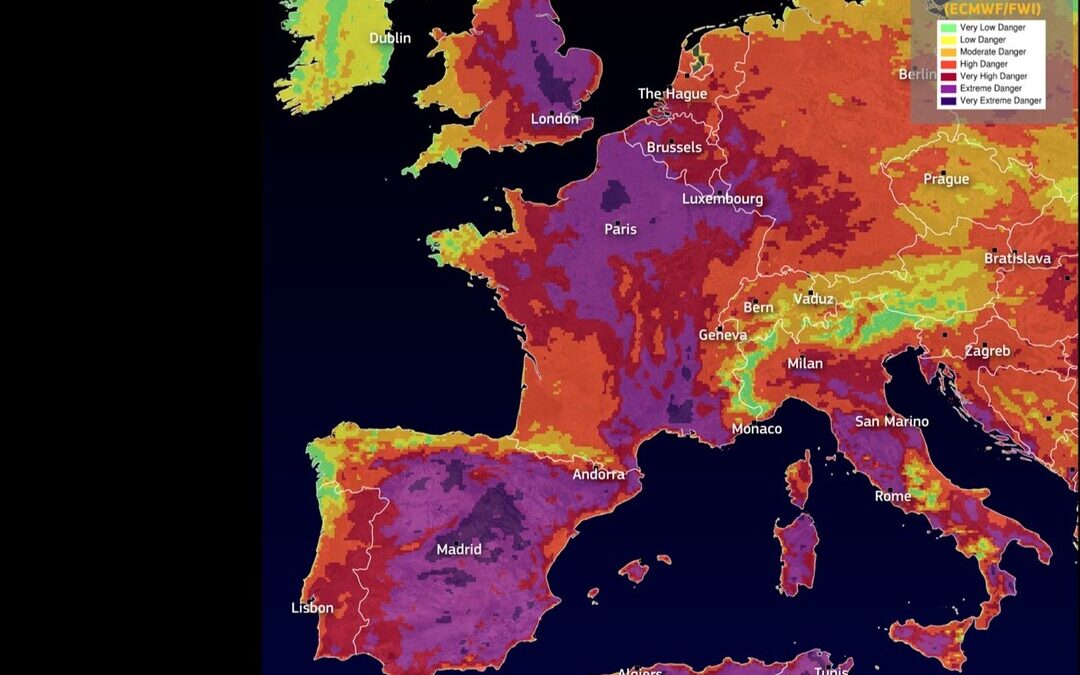Climate Change Responsible for Over 31K Deaths Each Year, Study Says
Study links climate change to rising deaths, mounting economic losses and urgent global public health risks worldwide.
Human-caused climate change is directly responsible for at least 31,119 deaths annually, with losses valued up to $357.9 billion, according to a new study published in Nature Climate Change.
The research, led by Colin J. Carlson of Yale University, draws on 20 end-to-end attribution studies that isolate the role of anthropogenic warming in driving illness, disability and mortality.
These studies, the authors said, represent the strongest evidence of the present-day health costs of climate change.
“After millions of preventable deaths, climate change must be treated like a health emergency,” Carlson said.
Heat Mortality Accounts for the Largest Share
The analysis shows that heat exposure is the leading source of climate-related deaths. Between 1991 and 2018, 271,656 people died across 43 countries due to human-driven increases in temperature.
In Paris, the 2003 heat wave caused more than 500 deaths, while Switzerland recorded 370 deaths during the extreme summer of 2022.
Other extreme events also contributed heavily. Hurricane Harvey in 2017 was estimated to have caused more than 50 deaths linked to anthropogenic warming.
Wildfire smoke added to the toll, with global fine particulate matter from fires between 2010 and 2019 responsible for 125,660 deaths.
Children Face Unique Risks
Children have faced some of the heaviest burdens. Temperature-related neonatal deaths in 29 low- and middle-income countries were estimated at 175,133 between 2001 and 2019.
Heat-related childhood deaths in Africa ranged from 3,000 to 11,000 over two decades.
In China, heatwave-related preterm births were linked to losses of more than $300 million annually in medical costs.
Life-long losses of earnings associated with cognitive disabilities exceeded $1 billion per year.
The report also cited research on childhood malaria. Between 2010 and 2015, malaria deaths linked to climate change reached an estimated 2,366.
Dengue fever added nearly 4,000 annual deaths, with climate warming expanding its burden across the Americas and Asia.
Unequal Research Footprint
Despite these mounting losses, the authors found that most attribution studies remain focused on high-income countries.
Six of seven subnational studies examined communities in Europe or North America. Very few have addressed impacts in Africa, Asia or Latin America, despite these regions experiencing higher risks.
Carlson noted that research leadership continues to be concentrated in the global north. “Knowledge from the global South is in the global South,” he said, arguing for more investment in scientists and public health experts working on the frontlines of climate injustice.
Legal and Financial Consequences
The study also pointed to the growing role of attribution in legal cases. A recent preprint estimated that dozens of heat-related deaths in Switzerland between 1969 and 2018 could be linked to emissions from individual fossil fuel companies.
Chevron, ExxonMobil and Saudi Aramco were each associated with more than 50 deaths, with attributable losses ranging from $169 million to $189 million.
The authors said such evidence could prove critical in climate litigation and in negotiations over loss and damage finance. Human health costs already dominate projections of aggregate economic damages from future climate change.
Expanding the Evidence Base
The study emphasized that current estimates still undercount the total health burden. Few attribution studies have examined malnutrition, diarrheal disease or mental health. Yet, observational evidence links climate change to food insecurity, stunting, anxiety, depression and suicides.
Every additional 1 degree Celsius of warming has been estimated to increase food insecurity by up to 2 percent. Still, no mortality estimates exist for deaths directly attributable to hunger.
Carlson and colleagues urged more comprehensive research that spans infectious disease, non-communicable disease, maternal and child health and displacement. They also called for broader data sharing and equitable collaboration with researchers in low- and middle-income countries.
“Health impact attribution is the strongest available line of evidence on what climate change is already doing to human well-being,” Carlson said. “We now need to expand it to provide the clearest possible picture of global losses.”
Also Read:
Over 47,000 People Died in Europe Last Year Due to Heat, Study Estimates
Nirmal Menon
Related posts

Subscribe
Error: Contact form not found.


